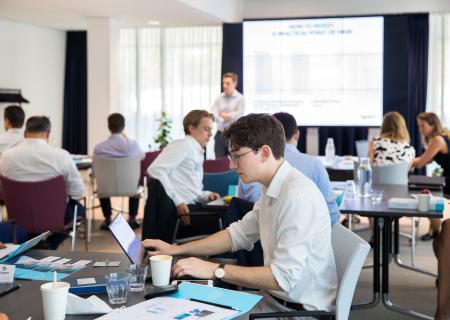Secondary Markets and Liquidity Committee
In the immediate aftermath of the UK Brexit vote, open end UK real estate funds faced a number of challenges.
Retail funds saw large increases in the level of redemptions, as investors were concerned about the possibility of falling real estate values. Some of these funds had to close for business, while the secondary market for trading them was weak. The Secondary Markets and Liquidity Committee has therefore stepped up its efforts to ensure INREV’s guidance principles for liquidity for open end funds are known and well understood by investors and managers alike.
The INREV Guidelines already contain sound principles on liquidity requirements in fund documentation, as well as governance advice highlighting the circumstances in which redemptions can occur. A key step in this direction was the release late last year of a best practice framework for creating liquidity in open end fund structures while simultaneously avoiding conflict among the parties involved. Alistair Dryer, Chair of the Secondary Markets and Liquidity Committee commented:
‘The INREV Guidelines are currently a very useful tool for both investors and fund managers in the UK, particularly in the light of the issues that UK open end real estate funds have seen after the Brexit vote’
Three elements of the guidance principles are being considered for further enhancement: the impact of exceptional circumstances on underlying property valuations, tools for managing redemption requests in the best interests of all investors and the continuous availability of clear documentation and disclosure for investors. An update of the current liquidity framework paper is planned for later this year.
The committee also continues to build up a picture of current market best practices for closed end funds. This has included working closely with other industry associations, including AREF and IPF, to identify best practices for the end of a fund’s life. Successful joint events with these organisations took place in London, Amsterdam and Jersey earlier this year, allowing a variety of practices and viewpoints to be discussed. We also hosted an open committee meeting during the INREV Annual Conference in April, with delegates having the chance to provide their ideas on areas such as end of fund life guidance and secondary market trading.
Apart from supporting the liquidity of investment vehicles, INREV’s continuing drive to improve transparency and comparability in the non-listed sector also involves establishing a standard language and terminology for use in vehicle documentation. To this end, the committee recently published a standardised template for a Sale and Purchase Agreement (“SPA”), to help both investors and managers during transactions of interests in non-listed real estate vehicles. The template sets out the main rights and obligations of buyers and sellers, and is available for download from the INREV website. It has so far been well received.
In the near future the committee will be wasting no time in ensuring that all investors fully understand the liquidity rights they have when investing in real estate vehicles, and will be developing a layman’s guide for investors on accessing the secondary market. This continues the principle of creating further transparency in the sector.
For further information contact Constantin Sorlescu at constantin.sorlescu@inrev.org









